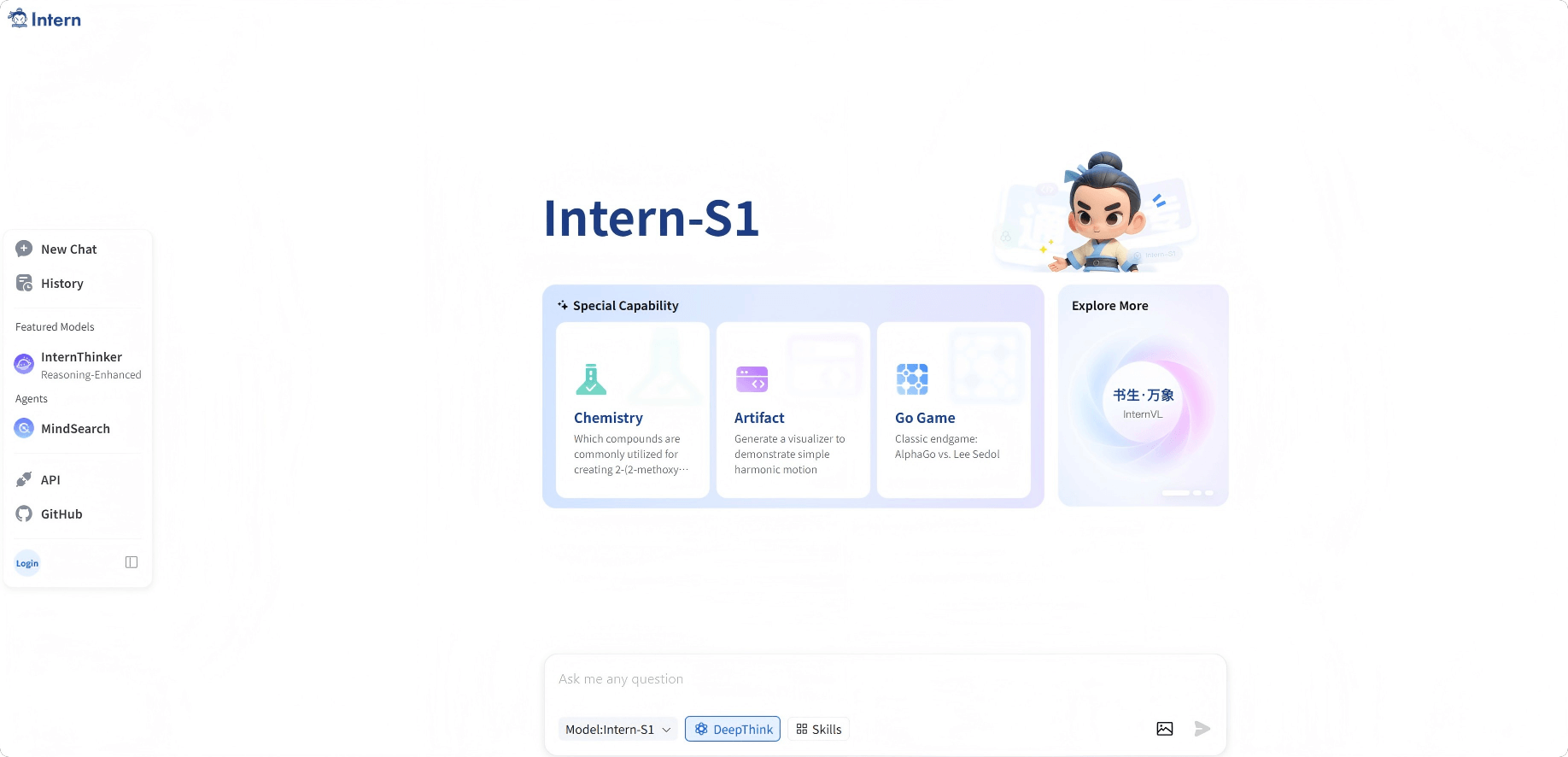Intern-S1-mini – A Lightweight Scientific Multimodal Reasoning Model Open-Sourced by Shanghai AI Lab
What is Intern-S1-mini?
Intern-S1-mini is a lightweight open-source multimodal reasoning model launched by Shanghai Artificial Intelligence Laboratory. Built on the same foundation as Intern-S1, the model integrates an 8B dense language model (Qwen3) with a 0.3B vision encoder (InternViT). Further pre-trained on 2.5 trillion science-domain tokens within a 5-trillion-token multimodal dataset, Intern-S1-mini demonstrates strong general capabilities and excels in professional scientific domains such as interpreting chemical structures, understanding protein sequences, and planning compound synthesis routes—making it a powerful assistant for real-world scientific research.

Key Features of Intern-S1-mini
-
Multimodal Data Processing: Handles multiple modalities including text and images, enabling cross-modal understanding and generation.
-
Scientific Domain Reasoning: Excels in chemistry, materials science, and biology tasks, such as interpreting chemical structures, analyzing protein sequences, and planning compound synthesis.
-
General Language Understanding & Generation: Strong natural language processing abilities, supporting dialogue, text generation, and summarization tasks.
-
Fast Deployment & Secondary Development: Lightweight design allows efficient deployment on resource-constrained devices, with support for customization and secondary development.
Technical Foundations of Intern-S1-mini
-
Architecture: Based on an 8B-parameter dense language model (Qwen3) combined with a 0.3B-parameter vision encoder (InternViT) for processing and understanding images.
-
Multimodal Fusion: Aligns text and image data through specialized training, enabling seamless cross-modal understanding and generation.
-
Pretraining Data: Further trained on a 5-trillion-token multimodal dataset, including 2.5 trillion science-domain tokens, covering diverse scientific disciplines to provide rich domain knowledge.
-
Scientific Optimization: Fine-tuned on scientific data to enhance performance in tasks such as chemical structure interpretation, protein sequence analysis, and compound synthesis planning.
-
Lightweight Design: Uses model compression techniques to reduce parameters and computational requirements, making it suitable for deployment on limited-resource environments.
Project Resources
-
Official Website: https://chat.intern-ai.org.cn/
-
HuggingFace Model Hub: https://huggingface.co/internlm/Intern-S1-mini
Application Scenarios of Intern-S1-mini
-
Scientific Research: Supports compound synthesis planning, protein sequence analysis, and materials property prediction in chemistry, biology, and materials science.
-
Education: Provides interactive learning experiences for science education, generates teaching content, and assists with Q&A to enhance science curricula.
-
Industrial Applications: Used in pharmaceuticals and chemical industries for drug discovery, process optimization, and quality control, improving efficiency and product quality.
-
Data Analysis & Decision Support: Assists in research project management and corporate decision-making through data analysis, market trend forecasting, and technology evaluation.
-
Public Services: Promotes science literacy through natural language dialogue, analyzes environmental data, supports ecological studies, and enhances public awareness of environmental protection.
Related Posts




